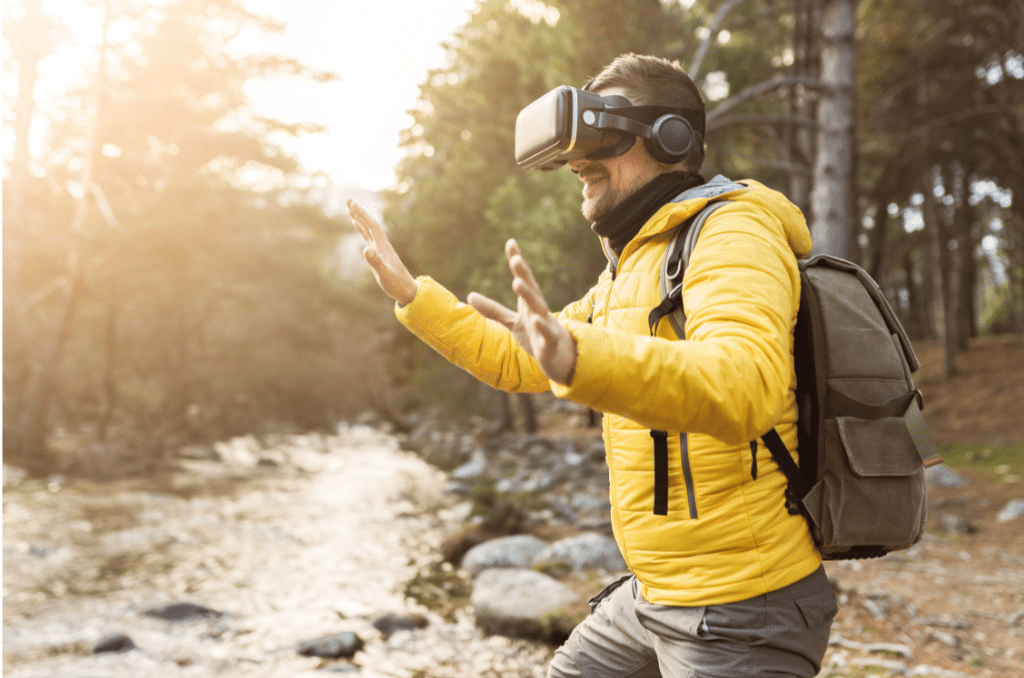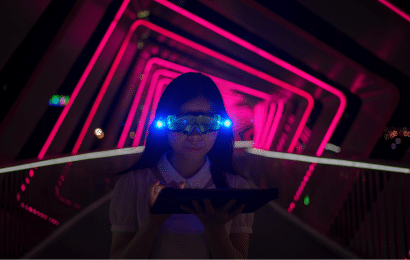In an era where physical travel has become increasingly complex and uncertain, virtual reality has emerged as a transformative solution, opening up a world of possibilities right from the comfort of our own homes. Virtual Reality Travel, or VR Travel, is not just a technological marvel but a gateway to explore destinations near and far in a profoundly immersive way. Imagine stepping into the bustling streets of Tokyo, strolling along the serene beaches of Bali, or even embarking on a virtual safari through the wilds of Africa, all without the need for passports, visas, or the hassle of long flights. VR Travel transports us to places we may have only dreamt of visiting, providing an authentic sensory experience that engages not just our sense of sight but also sound, touch, and sometimes even smell. It breaks down the barriers of distance, making it possible to stand atop the Great Wall of China one moment and then find ourselves amidst the vibrant energy of a Brazilian carnival the next.
As we embark on this journey through the virtual realm, we’ll uncover the wonders and potential of VR Travel, offering a glimpse into the future of exploration, education, and entertainment, all accessible with just a headset and an adventurous spirit. So, fasten your virtual seatbelts as we embark on an extraordinary adventure to explore destinations like never before, all from the confines of our own reality. Welcome to the world of Virtual Reality Travel – where the boundaries of time and space are redefined, and the explorer in each of us can roam freely without ever leaving home.

Explore Destinations Using Virtual Reality:
Immersive Exploration:
Virtual Reality Travel employs cutting-edge technology to create an immersive experience that goes beyond what traditional media can offer. Users don VR headsets and are transported to meticulously designed virtual environments where they can explore at their own pace. Whether it’s walking through the bustling streets of Paris, feeling the cool breeze on a mountaintop, or swimming with marine life on a coral reef, the level of immersion is extraordinary. Users can interact with their surroundings, peer around corners, and even engage in activities, creating a sense of presence that is as close to real-life exploration as technology currently allows.
Accessible Adventure:
The democratizing power of VR Travel cannot be overstated. It tears down physical barriers, enabling individuals with mobility challenges or health constraints to embark on adventures they may have thought impossible. Moreover, it levels the financial playing field, as a relatively affordable VR headset can provide access to a vast array of destinations, eliminating the expenses associated with traditional travel, such as airfare, accommodation, and meals.
Cultural Exchange:
VR Travel is not merely about sightseeing; it’s about cultural immersion. Users can engage with locals through virtual interactions, participate in traditional ceremonies and rituals, and even pick up some basic language skills. This fosters a sense of global understanding and empathy, breaking down stereotypes and promoting tolerance by allowing people to experience cultures from the inside.
Educational Value:
From history buffs to science enthusiasts, VR Travel offers a rich educational experience. It can transport students to pivotal moments in history, like the signing of the Declaration of Independence or the construction of the Great Wall of China. It can also take them on virtual field trips to explore ecosystems, such as the Amazon rainforest or the Great Barrier Reef, offering a dynamic and engaging form of learning that complements traditional education methods.
Environmental Sustainability:
As concerns about the environmental impact of travel grow, VR Travel provides an eco-friendly alternative. By reducing the need for long-haul flights and physical transportation, it helps lower carbon emissions associated with tourism. This eco-conscious approach aligns with the increasing emphasis on sustainable travel practices and can contribute to a more sustainable future for the planet.
Read More: The Metaverse: Stepping into the Next Frontier of Virtual Reality
Bottom line:
In a world that continually evolves, where our ability to physically traverse the globe may face obstacles and uncertainties, Virtual Reality Travel stands as a beacon of innovation and accessibility. It enables us to not only visit far-flung destinations but to engage with them on a profound level, fostering understanding, empathy, and appreciation for the diversity of our planet. Beyond its recreational allure, VR Travel carries immense educational potential, allowing students to step into history, scientists to explore uncharted territories, and cultural enthusiasts to immerse themselves in the traditions of remote societies.
It also offers a sustainable alternative to traditional tourism, reducing the environmental impact associated with travel. In essence, Virtual Reality Travel transcends mere entertainment; it represents a bridge between the boundaries of our physical world and the limitless horizons of our imagination. As we navigate the ever-changing landscapes of our globalized era, VR Travel emerges as a transformative force that brings the world closer to our hearts and minds, reminding us that exploration and connection are not confined by geography, but are instead boundless and within reach for anyone with a headset and a desire to discover.









